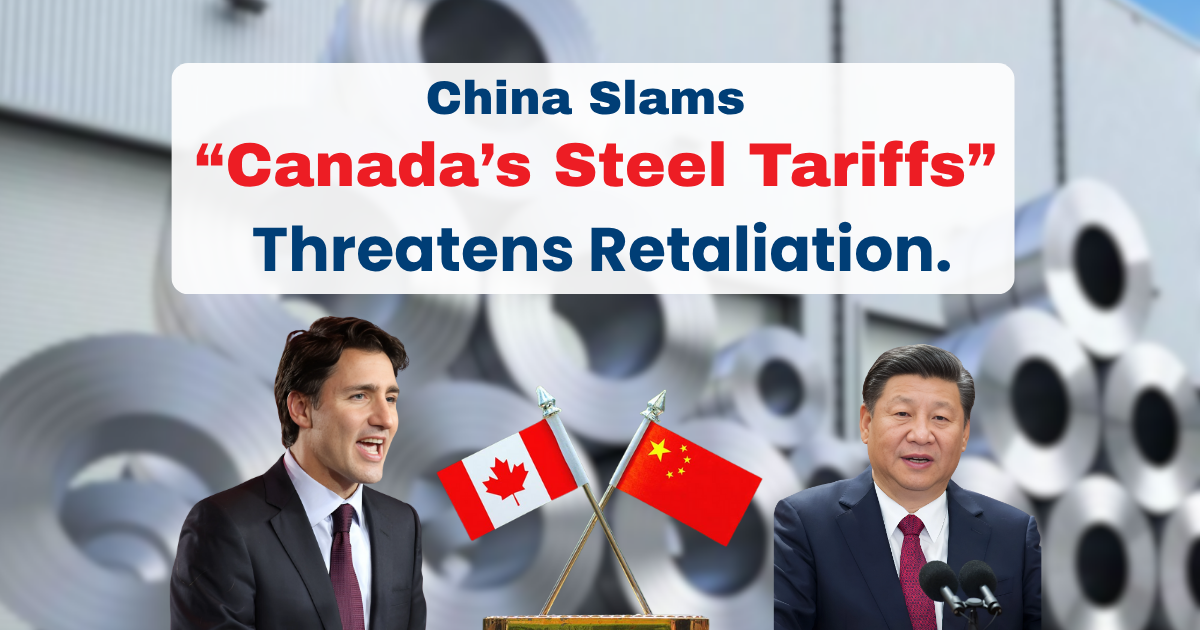India–US Trade Tensions Rise Over Steel and Auto Tariffs NMDC Limited reports a 38% drop in Q4 FY24 consolidated net profit RINL to Raise $23 Million Through Land Sales Amid Crisis

China has sharply criticized Canada’s move to impose a 25% tariff on steel imports containing Chinese-origin material, describing it as a violation of World Trade Organization (WTO) regulations and a disruption to the global trade framework.
A Chinese embassy spokesperson in Ottawa argued the policy is “legally and economically unjustified,” asserting it lacks a proper legal foundation and undermines normal Sino-Canadian trade. The tariff—announced by Prime Minister Mark Carney is intended to protect Canada’s domestic steel industry amid an influx of cheap imports, following similar U.S. steel tariffs .
China’s commerce ministry likewise condemned the “wrong practice,” urging Canada to rescind the restrictions. Beijing has warned of possible countermeasures, including trade retaliation, to defend its companies' interests.
This development marks the latest flare-up in the Canada–China trade war, which began in late 2024 after Ottawa enacted 100% tariffs on Chinese electric vehicles and 25% duties on steel and aluminium. China responded with tariffs on Canadian farm and food products earlier this year.
While Prime Minister Carney framed the steel tariffs as necessary to shield the domestic industry, Canada remains China’s second-largest trading partner, with bilateral trade hitting C$120 billion last year. Beijing hopes for a reversal of the policy, suggesting that if Canada relents, its planned retaliatory tariffs could be adjusted or dropped.
With both nations already deep in economic friction, further escalation could impact broader industries beyond steel. Canada’s Trade Minister Maninder Sidhu has proposed resuming dialogue with Chinese officials as a possible avenue to
Also Read : China’s Steel Output to Drop 4% in 2025 Amid Real Estate Slump and Green Targets China sets up third fund with $47.5 bn to grow semiconductor sector